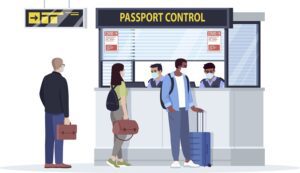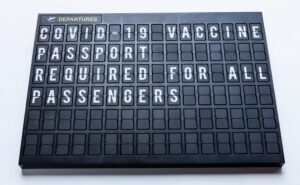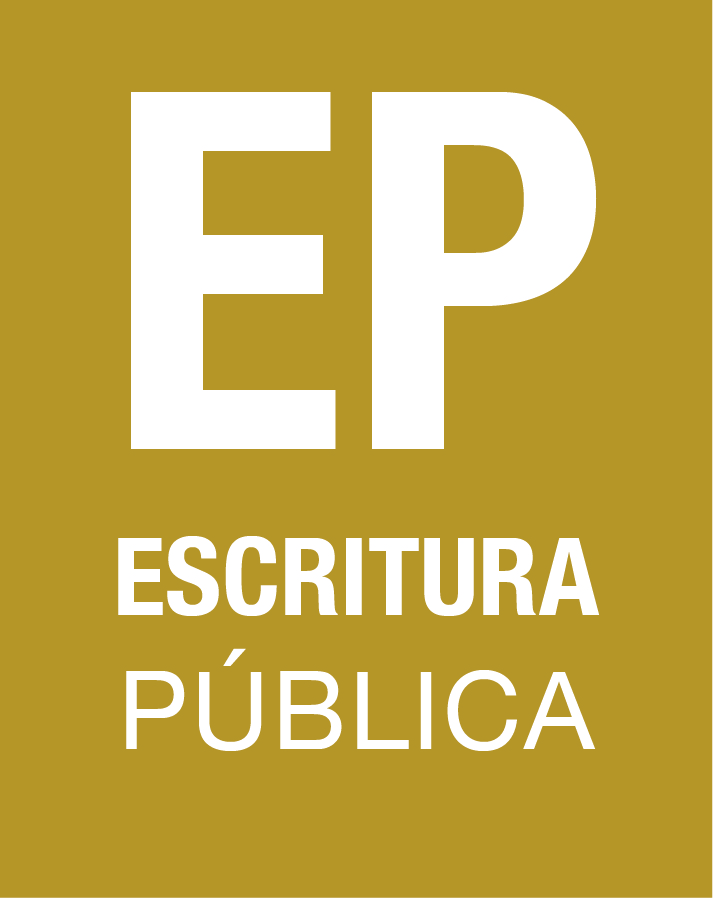ÁMBITO EUROPEO
Un certificado común para salvar el verano
Common covid certificate to save the summer season
Europa aprueba en tiempo record el documento solicitado por países turísticos como Grecia o España para acreditar la vacunación, la superación de una prueba covid o haberse recuperado de la enfermedad.
JORGE VALERO
El pasado 12 de enero, el primer ministro de Grecia, Kyriakos Mitsotakis, envió una carta a la presidenta de la Comisión Europea y el resto de líderes europeos urgiéndoles a crear un certificado de vacunación europeo.
Mitsotakis apuntaba que el certificado representaría “un incentivo positivo” para asegurar que la gente se vacunara, y presionaba al resto de sus colegas europeos para que se pusieran manos a la obra cuanto antes, dados los problemas que habían tenido los europeos los meses anteriores para acordar un localizador común para viajeros.
“Si logramos rápidamente un entendimiento común entre los Estados miembros sobre un certificado de vacunación armonizado y sus usos, podremos impulsar el tema en los foros internacionales pertinentes, contribuyendo así al restablecimiento de la movilidad a escala mundial, que es el base para restablecer la actividad económica a los niveles anteriores a la crisis”, resaltó Mitsotakis en su carta.
“Para países como Grecia, que dependen del turismo, es imperativo que este problema se resuelva antes de la temporada de verano”, añadió.
Acuerdo común. La propuesta no tardó en ser respaldada por países dependientes del turismo como España, Portugal o Croacia. El resto de capitales no se oponía, pero recordaron que había dudas que convenía despejar primero, como si los vacunados pueden trasmitir el virus o cuánto tiempo dura la inmunidad para aquellos que han superado el covid-19, como señaló un alto cargo diplomático del grupo de los escépticos.
En los pasillos de Bruselas, además, algunos se preguntaban si merecería la pena el esfuerzo, dado que resultaría difícil llegar a junio con la iniciativa lista, y al final solo se podrían beneficiar las franjas adultas de población, teniendo en cuenta el complicado arranque que tuvo la campaña de vacunación europea. Los jóvenes, grandes víctimas de esta pandemia, volvían a quedar perjudicados con el movimiento para salvar el verano, la temporada que tanto estaban esperando.
 A pesar de las dudas, la Comisión Europea presentó su propuesta en marzo. Apenas dos meses más tarde, los negociadores del Consejo (que agrupa a los Estados miembros) y del Parlamento Europeo llegaron a un acuerdo sobre los detalles de este documento, que acreditará quién ha sido vacunado, superado la enfermedad o una prueba covid.
A pesar de las dudas, la Comisión Europea presentó su propuesta en marzo. Apenas dos meses más tarde, los negociadores del Consejo (que agrupa a los Estados miembros) y del Parlamento Europeo llegaron a un acuerdo sobre los detalles de este documento, que acreditará quién ha sido vacunado, superado la enfermedad o una prueba covid.
Ambas instituciones ratificaron el documento final en junio, dejando todo listo para que entre en vigor el 1 de julio.
“Nuestra Unión demostró una vez más que trabajamos mejor cuando trabajamos juntos. El Reglamento del Certificado COVID Digital de la UE fue acordado entre nuestras instituciones en el tiempo récord de 62 días. Mientras trabajábamos en el proceso legislativo, también construimos la columna vertebral técnica del sistema, el portal de la UE, que está activo desde el 1 de junio”, se felicitó la presidenta de la Comisión Europea, Ursula von der Leyen, el pasado 14 de junio cuando la Comisión, la Eurocámara y el Consejo escenificaron la firma del reglamento.
“El Certificado de la UE permitirá nuevamente a los ciudadanos disfrutar del más tangible y apreciado de los derechos de la UE: el derecho a la libre circulación”, añadió la alemana.
Con una campaña de vacunación cogiendo velocidad, la inminente llegada de los fondos de recuperación y la relajación de las restricciones por toda Europa, el certificado representa un símbolo no solo de ese esfuerzo colectivo del que habló Von der Leyen para superar la pandemia, sino también de la vuelta a la normalidad.
Detrás quedaban dificultades y penurias, como los problemas con la estrategia de vacunación, las tensiones con AstraZeneca o las dudas sobre el vigor de la recuperación europea. La llegada de los meses de calor trajo de vuelta el optimismo al continente europeo.
Pero antes de llegar a buen puerto, la Eurocámara y el Consejo tuvieron que negociar contrarreloj para salvar las diferencias en sus posiciones. Los principales escollos fueron el riesgo de discriminación frente a aquellos que no han sido vacunados aún, y la posibilidad de imponer restricciones adicionales incluso teniendo el certificado, tal y como pedían las capitales. Finalmente, los eurodiputados consiguieron 100 millones de euros de fondos europeos para financiar pruebas que permitan obtener el certificado a quienes no han recibido sus dosis. Además, consiguieron arrancar a los Estados miembros que no impongan limitaciones a quienes tengan el documento, como cuarentenas o pruebas PCR, “a menos que sean necesarias y proporcionales para salvaguardar la salud pública”. Como criterio, se usará la información epidemiológica del Centro Europeo para el Control y la Prevención de Enfermedades.
El negociador por parte del Parlamento Europeo, el eurodiputado socialista Juan Fernando López Aguilar, se felicitó de que habían conseguido restaurar la libertad de movimientos en el espacio Schengen. “Se anima a los Estados de la UE a abstenerse de imponer más restricciones, a menos que sea estrictamente necesario y proporcionado”, subrayó el pasado junio.
Los detalles. El certificado COVID Digital de la UE, su nombre definitivo tras varios vaivenes, será accesible para todo el mundo y abarcará la vacunación, las pruebas diagnósticas y la recuperación del covid-19. Estará disponible en todos los idiomas de la UE, tanto en formato digital como papel, será seguro e incluirá un código QR con firma digital.
Puede expedirse y utilizarse en todos los Estados miembros de la UE para facilitar la libre circulación. Cada gobierno podrá decidir si lo aplica a otros usos en su territorio, como el acceso a actividades de ocio o espectáculos. Todos los ciudadanos de la UE y los nacionales de terceros países que se encuentren o residan legalmente en la UE podrán obtenerlo de manera gratuita. La UE negocia además con países terceros para reconocer certificados similares que expidan en base a unos parámetros comunes.
 Solo contendrá la información imprescindible, como el nombre, la fecha de nacimiento, el emisor del certificado y un identificador único vinculado a este último. En el caso de vacunación, el certificado informará sobre el tipo de vacuna y su fabricante, el número de dosis administradas y la fecha de vacunación. En el caso de certificado de diagnóstico, el documento detallará el tipo de prueba diagnóstica, la fecha y la hora de su realización, el lugar y el resultado. Si se trata de un certificado de recuperación, informará sobre la fecha del resultado positivo de la prueba de diagnóstico y el período de validez.
Solo contendrá la información imprescindible, como el nombre, la fecha de nacimiento, el emisor del certificado y un identificador único vinculado a este último. En el caso de vacunación, el certificado informará sobre el tipo de vacuna y su fabricante, el número de dosis administradas y la fecha de vacunación. En el caso de certificado de diagnóstico, el documento detallará el tipo de prueba diagnóstica, la fecha y la hora de su realización, el lugar y el resultado. Si se trata de un certificado de recuperación, informará sobre la fecha del resultado positivo de la prueba de diagnóstico y el período de validez.
En el caso de las vacunas, se aceptarán las aprobadas por la Agencia Europea del Medicamento y los países podrán incluir aquellas que han sido aprobadas por la Organización Mundial de la Salud, como la rusa Sputnik V y las chinas Sinopharm y Sinovac. Los certificados se expedirán ya desde la primera dosis, aunque deberá figurar en el documento el número de inoculaciones recibidas. La Comisión Europea propuso que aquellos que han recibido una dosis única de una vacuna de dos dosis (después de haber estado infectados previamente por el covid-19) se consideren totalmente vacunados a efectos de viajes.
Respecto a las pruebas, se aceptarán las PCR y los Estados miembros podrán decidir si reconocen las de detección rápida de antígenos.
El certificado será otorgado por centros emisores como hospitales, centros de pruebas diagnósticas o autoridades sanitarias en los Estados miembros, previa solicitud o automáticamente. Funcionará con un código QR con una firma digital, personalizada para cada centro emisor, para protegerlo contra falsificaciones. Todas ellas se almacenan en bases de datos nacionales.
Para comprobar de manera segura los certificados entre autoridades de los Estados miembros, sin transferir datos personales, la Comisión activó una pasarela el pasado 1 de junio. Esta plataforma tecnológica ha sido uno de los elementos en los que más han tenido que trabajar los expertos, dados los problemas que tuvieron los socios europeos los pasados meses para desarrollar el localizador de pasajeros.
Validez del certificado
La Comisión propuso periodos de validez comunes para las pruebas diagnósticas de 72 horas para las PCR y, para los Estados miembros que los acepten, 48 horas para las pruebas rápidas de antígenos. Mientras, el período máximo de validez del certificado de recuperación es de 180 días, aunque la Comisión podría adaptar estos principios sobre la base de nuevas pruebas científicas. Sin embargo, las autoridades comunitarias no fijaron una validez máxima para los certificados de vacunación, ya que dependerá de los datos sobre la duración de la protección de las diferentes vacunas.
Certificate validity
The Commission proposed common validity periods for diagnostic tests of 72 hours for PCR tests and 48 hours for rapid antigen tests. Meanwhile, the maximum period of validity for those recovering from the virus will be 180 days, although the Commission could adapt these principles on the basis of new scientific evidence. However, EU authorities did not set a maximum validity for vaccination certificates, since it will depend on the latest data about the protection provided by the different vaccines.
No discriminación
Una de las principales preocupaciones para algunos Estados miembros, la Eurocámara y asociaciones civiles era el riesgo de que el certificado marginara a quienes no hubieran sido aún vacunados. Por eso la Comisión incluyó la posibilidad de otorgarlo también a quienes pasen una prueba covid o se hayan recuperado de la enfermedad.
El reglamento también incluye algunas cláusulas para evitar discriminaciones entre los nacionales y otros ciudadanos comunitarios. Por ejemplo, cuando un Estado miembro decida levantar las restricciones de viaje para sus propios ciudadanos que sean titulares de un certificado por la primera dosis, deberá extender el mismo tratamiento a otros ciudadanos de la UE. Al mismo tiempo, si acepta las pruebas de detección rápida de antígenos, deberá aceptar también los certificados de estas pruebas expedidos por otro Estado miembro.
Nondiscrimination
One of the main concerns for some member states, the European Parliament and civil society organisations was the risk that the certificate would marginalise those who have not yet been vaccinated. That is why the Commission included the possibility of granting the certificate to those who passed a covid test or have recovered from the disease.
The regulation also includes some clauses to avoid discrimination between nationals and other EU citizens. For example, when a member state decides to lift travel restrictions for its own citizens who are holders of a certificate for the first dose, it must extend the same treatment to other EU citizens. At the same time, if a government accepts rapid antigen detection tests, they must also accept the certificates for these tests issued by another Member State.
in English
Europe approves in record time the proposal requested by tourist countries including Greece or Spain to prove vaccination, a covid test or having recovered from the disease.
On January 12, the Prime Minister of Greece, Kyriakos Mitsotakis, sent a letter to the President of the European Commission and other European leaders urging them to create a European vaccination certificate.
Mitsotakis pointed out that the certificate would represent «a positive incentive» to ensure that people get vaccinated, and pressed the rest of his European colleagues to speed up the work as soon as possible, given the problems that European governments had in previous months to agree on a common locator form for travellers.
“If we rapidly reach a common understanding between Member States on a harmonized vaccination certification form and its uses, we can then push the issue forward in the relevant international fora, thus contributing to the re-establishment of mobility on a global scale, which is the foundation for re-establishing economic activity to pre-crisis levels,»Mitsotakis highlighted in his letter.
«For countries such as Greece, which are dependent on tourism, it’s imperative that this issue is resolved before the summer season,” he added.
Agreement. The proposal was quickly supported by countries dependent on tourism such as Spain, Portugal or Croatia. The rest of the capitals did not oppose it, but they recalled that there were issues that should be cleared first, such as whether those vaccinated can transmit the virus or how long the immunity lasts for those who have passed the covid-19, as pointed out by a senior diplomatic official of the group of the skeptics.
In Brussels, some also wondered whether it would be worth the effort, since it would be difficult to have the certificate in place by June, and in the end only the adult population may benefit from it , taking into account the complicated start of the European vaccination campaign. Young people, great victims of this pandemic, were once again affected by the attempt to save the summer seson they had been waiting for so long.
In spite of the existing doubts, the European Commission presented its proposal in March. Two months later, the negotiators of the Council (which brings together the member states) and the European Parliament reached an agreement on the details of the certificate, which will prove who has been vaccinated, passed the disease or a covid test.
Both institutions ratified the final document in June, ready to enter into force on 1 July.
“Our Union showed again that we work best when we work together. The EU Digital COVID Certificate Regulation was agreed between our institutions in the record time of 62 days. While we worked through the legislative process, we also built the technical backbone of the system, the EU gateway, which is live since 1 June,” said the President of the European Commission, Ursula von der Leyen, on 14 June during the signing ceremony of the regulation with the Commission, the European Parliament and the Council.
”The EU Certificate will again enable citizens to enjoy this most tangible and cherished of EU rights – the right to free movement,» added von der Leyen.
With a vaccination campaign picking up speed, the imminent arrival of recovery funds and the relaxation of restrictions across Europe, the certificate represents a symbol not only of the collective effort von der Leyen spoke of to overcome the pandemic, but also of the return to normal times.
Slowly, Europe started to leave behind difficulties and hardships, including problems with the vaccination strategy, tensions with AstraZeneca or doubts about the vigor of the European recovery.
The arrival of the summer season brought optimism back to the European soil.
But before reaching a successful conclusion on the covid certificate, the European Parliament and the Council had to negotiate against the clock to bridge the differences in their positions. The main bone of contention was the risk of discrimination against those who have not yet been vaccinated, and the possibility of imposing additional restrictions to those holding the certificate, as requested by the governments.
In the end, MEPs obtained €100 million of EU funds to finance tests for those who have not been vaccinated. In addition, the Parliament succeeded in getting the member states’ commitment not to impose restrictions, such as quarantines or PCR tests, to covid certificate holders, «unless they are necessary and proportionate to safeguard public health.» The decision will be based on the epidemiological information from the European Centre for Disease Prevention and Control.
The European Parliament’s lead negotiator, Spanish MEP Juan Fernando López Aguilar, celebrated that they managed to restore the freedom of movement in the Schengen area. «EU member states are encouraged to refrain from imposing further restrictions, unless they are strictly necessary and proportionate,» he stressed last June.
The details. The EU Digital COVID certificate, the final name after various changes, will be accessible to everyone and will cover vaccination, diagnostic tests and recovery from covid-19. It will be available in all EU languages, both digital and paper, and will be secure, including a QR code with a digital signature.
It can be issued and used in all EU member states to facilitate the freedom of movement. Each government may decide whether they want to apply it to other uses in its territory, such as access to restaurants or concerts.
All EU citizens and third-country nationals who are in the EU or legally reside in the Union will be able to obtain it for free. The EU also is in talks with third countries to recognize similar certificates that they may issue based on similar parameters.
The certificate will only contain essential information, such as name, date of birth, issuer of the certificate and its unique code.
In the case of vaccination, the certificate will inform about the type of vaccine and its manufacturer, the number of doses administered and the date of vaccination. In the case of a diagnostic certificate, the document will detail the type of diagnostic test, the date and time it was made, and the result. If it is a certificate of recovery, it will report the date of the positive diagnostic test result and the period of validity.
The vaccines accepted are those approved by the European Medicines Agency, but countries will be able to accept also those that have been approved by the World Health Organization, including the Russian Sputnik V and the Chinese Sinopharm and Sinovac.
Certificates will be issued from the first dose, although the number of inoculations received must appear in the document. The European Commission proposed that those who have received a single dose of a two-dose vaccine after being previously infected with COVID-19 be considered fully vaccinated for travel purposes.
Regarding the tests, PCR tests will be accepted and Member States will be able to decide whether to recognise those for rapid antigen detection.
The certificate will be granted by issuing centers such as hospitals, diagnostic testing centers or health authorities in member states, upon request or automatically. It will work with a QR code with a digital signature, unique for each issuing center, to protect it against counterfeiting. All of them will be stored in national databases.
To securely verify certificates between different authorities across the EU without transferring personal data, the Commission activated a gateway on 1 June. This technological platform has been one of the tricky elements of the proposal, in light of the problems that European countries had over the past months to develop the passenger locator form.



